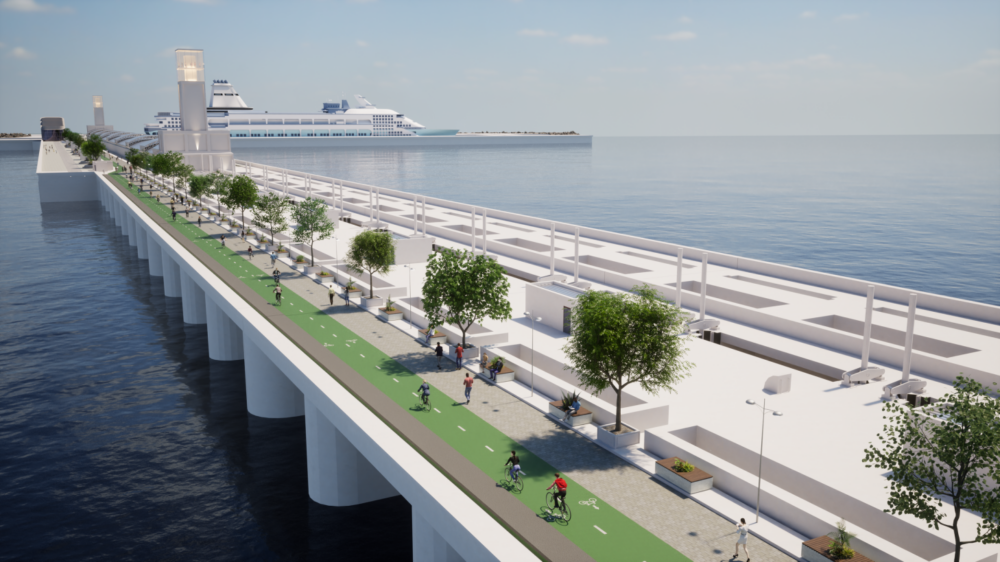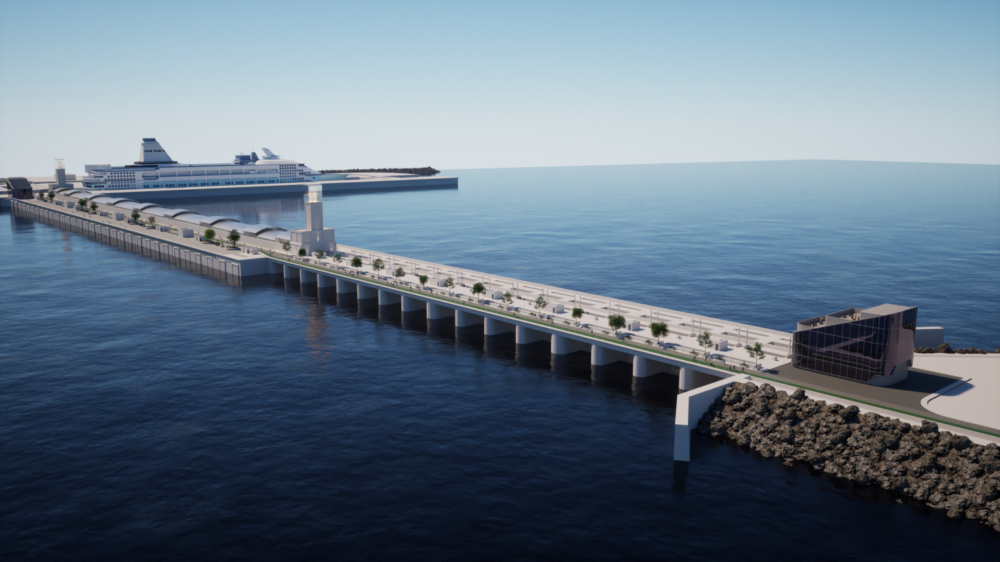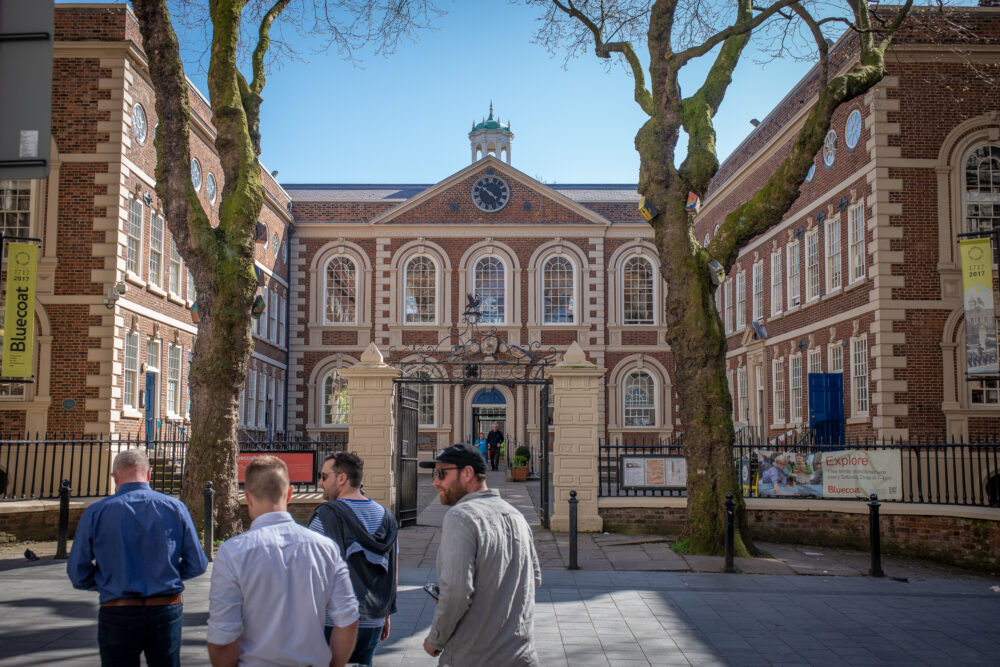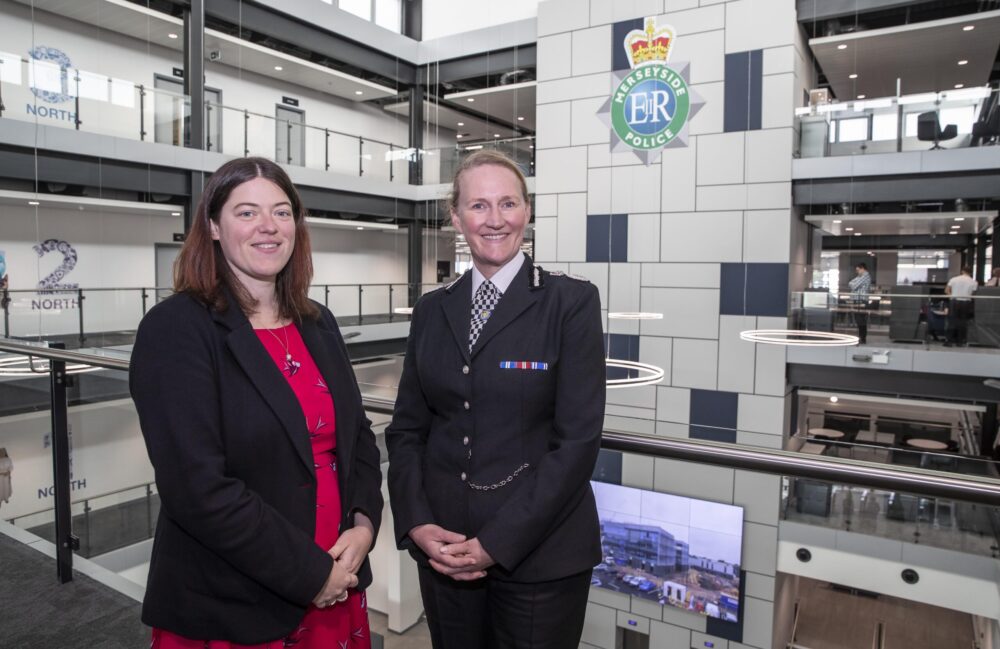
Liverpool News
Flythrough video revealed for the Mersey Tidal Power Scheme
4 months ago

A new flythrough video has revealed how the world’s largest tidal scheme on the River Mersey could look – above and below the water.
The flythrough has been published following a decision by Mayor Steve Rotheram and the Liverpool City Region Combined Authority to pursue a barrage between the Wirral and Liverpool as the preferred option for the region’s flagship Mersey Tidal Power project.
At its meeting on Friday 15 March, the Combined Authority also agreed to start the formal planning process by preparing a scoping opinion to be submitted to the Planning Inspector later this year for what would be the world’s largest tidal power scheme.
The barrage scheme – the “first of a kind” in the UK – could generate clean, predictable energy for 120 years and create thousands of jobs in its construction and operation.
Steve Rotheram, Mayor of the Liverpool City Region, said:
“The River Mersey has been the lifeblood of our region’s fortunes for centuries – and it has an even more vital role to play in our future. Where our area was once a leader in the First Industrial Revolution, we now have an opportunity to seize our chance to become a leader in the Green Industrial Revolution.
“Mersey Tidal Power has the potential to generate clean, predictable energy for 120 years, create thousands of green jobs and apprenticeships – and all but seal our area’s status as Britain’s Renewable Energy Coast. Beyond the banks of the River Mersey, this is a national infrastructure asset that could position the UK as a global leader in the renewables race and help to turbocharge our net zero ambitions.
“We are under no illusions, we know there are still significant technical and financial challenges to overcome, but the plans we’ve agreed mark a huge step on our journey to bringing Mersey Tidal Power to life. Quite simply, the case for tidal has never been clearer – both for our economy and our planet.”
Construction of a barrage would open the possibility of a first-ever cycling and pedestrian route over the river between Liverpool and Wirral and could also provide a defence against future flooding risks associated with climate change.
Over the last three years, the authority has undertaken early technical work to develop the potential scope of the scheme, which could be up and running within a decade, playing a huge role in the region’s push to be net zero carbon by 2040 – at least a decade ahead of national targets.
Mersey Tidal Power is a key part of a push for tidal range projects across the UK, focused on the west coast. Tidal range technology can make use of the UK’s abundant natural resources to create greater domestic energy security, complementing offshore wind, hydrogen and solar power.

Councillor David Baines, Liverpool City Region Combined Authority Portfolio Holder for Net Zero and Air Quality, said:
“Existing strengths in wind and solar power and emerging strengths in hydrogen mean that our city region is already leading the way in developing a cleaner and greener economy. Harnessing the power of the River Mersey to generate green and predictable energy for the next 100 years and more would be an incredible addition to our clean energy mix. We need to ensure we are extremely aware of our sensitive local ecology but just reaching this stage in the Mersey Tidal Power project has taken a huge amount of hard work allied with vision and would be a big step towards it becoming a reality.”
Prior to the scoping opinion being submitted the Combined Authority will now carry out a period of engagement, regionally and nationally, with stakeholders. Once the scoping opinion is received, the CA will hold formal consultations across communities and stakeholder groups.
The scoping opinion will be based on the creation of a barrage across the river.
The report to the Combined Authority notes that a barrage option would be less expensive than a lagoon, requiring less material and lower levels of government support. It would offer numerous other advantages, including the possibility of a pedestrian and cycle link between Liverpool and Wirral. A barrage could also help manage long-term environment issues related to climate change, including managing the effects of sea level rise on the Mersey.
Submitting a scoping opinion is the first step towards preparing a Development Control Order (DCO) submission – a process which typically takes two to three years. The scoping opinion submission describes the project and asks the Planning Inspector to advise on the scope and breadth of surveys needed to complete the documents outlining the environmental impact of the scheme.
The Mersey Tidal Power project would be the largest tidal range scheme in the world, using tried and tested technology for the first time in the UK. The multi-billion-pound project would potentially create thousands of local jobs, bringing economic and resilience benefits to the Liverpool City Region, in an asset that could operate for more than 120 years.









 Subscribe
Subscribe Follow Us
Follow Us Follow Us
Follow Us Follow Us
Follow Us Follow Us
Follow Us Follow Us
Follow Us











